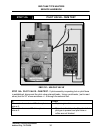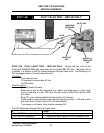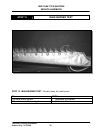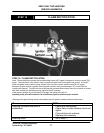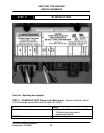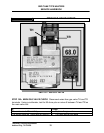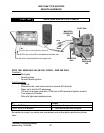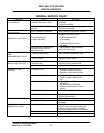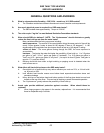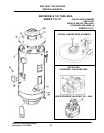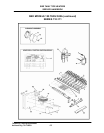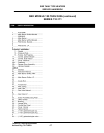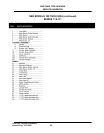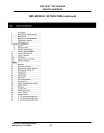
SBD TANK TYPE HEATERS
SERVICE HANDBOOK
Technical Training Department
Ashland City, TN ©2003
42
GENERAL QUESTIONS AND ANSWERS
Q. What is unique about the Canadian – SBC-CGA – models vs. U.S. SBD models?
A. The Canadian models have different dimensions to meet Canadian code requirements.
Q: How much electrical power is required for a SBD water heater?
A: The SBD models draw approximately .7 Amps at 120VAC.
Q: The units require "leg kits" to meet National Sanitation Foundation standards.
Q: When should SBDs be delimed? NOTE: The “Hydrocannon” should eliminate or greatly
reduce the lime build up rate from the water heater.
Many variables affect the liming up process including:
water temperature - The amount of lime precipitation during the same period of time will be
nearly 2 times greater if water is stored at 140 degrees F than at 120 degrees F. A 180
degree setting will precipitate lime about seven times as fast as a 140 degree F setting.
volume of water - The more gallons flowing through the SBD, the more exposure to
accumulation.
hardness – The harder the water the higher the possibility of lime build
up. 1 to 3.5 grains
per gallon is "soft", 3.5 to 7 grains per gallon is "moderate", 7 to 10.5 grains per gallon is
"hard" and 10.5 + grains per gallon is "very hard". (An aspirin is about 5 grains. One grain is
equal to 17.1 parts per million.)
A: Deliming should be done when a slight rumbling or popping sound is detected when the
main burners are on.
Q: What effect will lime build-up have on the SBD water heater?
A: One eighth inch of scale build-up may reduce efficiency as much as 22%; a 1/4 inch build-
up, as much as 38%.
A: Less efficient heat transfer means more bottom head expansion/contraction stress and
premature leakage.
A: Heavy build-up on the bottom head and bottom portion of the flue pipes leads to more heat
transfer at the top of the flues. This can lead to stacking or erratic thermostat operation.
A: The “Hydrocannon” greatly reduces the possibility of lime build-up.
Q: Anode rods provide additional protection
against corrosion. When should these be
replaced?
A: When large gouges or pits appear in the anodes, replace them. It is recommended that
these be inspected every 6 months.



